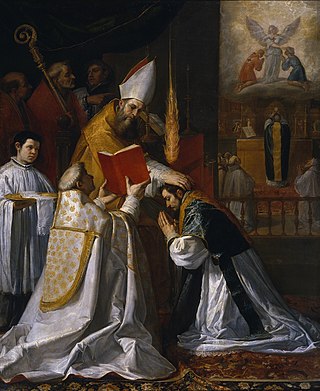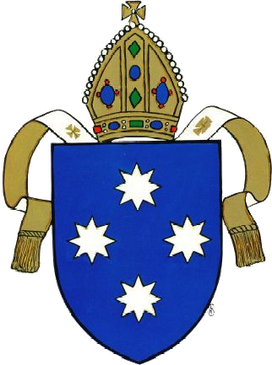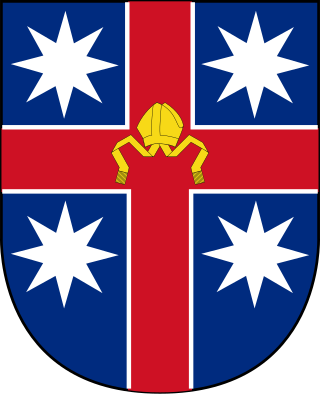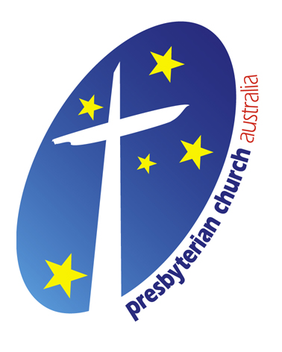Related Research Articles

In certain Christian denominations, holy orders are the ordained ministries of bishop, priest (presbyter), and deacon, and the sacrament or rite by which candidates are ordained to those orders. Churches recognizing these orders include the Catholic Church, the Eastern Orthodox, Oriental Orthodox, Anglican, Assyrian, Old Catholic, Independent Catholic and some Lutheran churches. Except for Lutherans and some Anglicans, these churches regard ordination as a sacrament.

The Presbyterian Church (USA), abbreviated PC (USA), is a mainline Protestant denomination in the United States. It is the largest Presbyterian denomination in the country, known for its liberal stance on doctrine and its ordaining of women and members of the LGBT community as elders and ministers. The Presbyterian Church (USA) was established with the 1983 merger of the Presbyterian Church in the United States, whose churches were located in the Southern and border states, with the United Presbyterian Church in the United States of America, whose congregations could be found in every state.

A deacon is a member of the diaconate, an office in Christian churches that is generally associated with service of some kind, but which varies among theological and denominational traditions. Major Christian churches, such as the Catholic Church, the Oriental Orthodox Churches, the Eastern Orthodox Church, the Scandinavian Lutheran Churches, the Methodist Churches, the Anglican Communion, and the Free Church of England, view the diaconate as an order of ministry.
A pastor is the leader of a Christian congregation who also gives advice and counsel to people from the community or congregation. In Lutheranism, Catholicism, Eastern Orthodoxy, Oriental Orthodoxy and Anglicanism, pastors are always ordained. In Methodism, pastors may be either licensed or ordained.

The Diocese of Sydney is a diocese in Sydney, within the Province of New South Wales of the Anglican Church of Australia. The majority of the diocese is evangelical and low church in tradition.

The Anglican Church of Australia, formerly known as the Church of England in Australia and Tasmania, is a Christian church in Australia and an autonomous church of the Anglican Communion. It is the second largest church in Australia after the Catholic Church. According to the 2016 census, 3.1 million Australians identify as Anglicans. As of 2016, the Anglican Church of Australia had more than 3 million nominal members and 437,880 active baptised members. For much of Australian history since the arrival of the 'First Fleet' in January 1788, the church was the largest religious denomination. It remains today one of the largest providers of social welfare services in Australia.

The Church of South India (CSI) is a united Protestant Church in India. It is the result of union of a number of Protestant denominations in South India that occurred after the independence of India.

The Presbyterian Church in the United States of America (PCUSA) was the first national Presbyterian denomination in the United States, existing from 1789 to 1958. In that year, the PCUSA merged with the United Presbyterian Church of North America, a denomination with roots in the Seceder and Covenanter traditions of Presbyterianism. The new church was named the United Presbyterian Church in the United States of America. It was a predecessor to the contemporary Presbyterian Church (USA).

Peter Frederick Carnley is a retired Australian Anglican bishop and author. He was the Archbishop of Perth from 1981 to 2005 and Primate of the Anglican Church of Australia from 2000 until May 2005. He ordained the first women priests in Australia. In the 2007 Queen's Birthday Honours list, he was appointed a Companion of the Order of Australia. He is married to Ann Carnley.He also founded the school Peter Carnley Anglican Community School.

The Presbyterian Church of Australia (PCA), founded in 1901, is the largest Presbyterian denomination in Australia. The larger Uniting Church in Australia incorporated about two-thirds of the PCA in 1977.

St Andrew's College is a residential college for women and men within the University of Sydney, in the suburb of Newtown. Home to over 380 male and female undergraduate students, postgraduate students, resident fellows, and graduate residents.

The Anglican Diocese of Melbourne is the metropolitan diocese of the Province of Victoria in the Anglican Church of Australia. The diocese was founded from the Diocese of Australia by letters patent of 25 June 1847 and includes the cities of Melbourne and Geelong and also some more rural areas. The cathedral church is St Paul's Cathedral, Melbourne. The current Archbishop of Melbourne since 2006 is Philip Freier, who was translated from the Anglican Diocese of The Northern Territory, and who was the Anglican Primate of Australia from 2014 to 2020.
The ordination of lesbian, gay, bisexual and/or transgender (LGBT) clergy who are open about their sexuality or gender identity; are sexually active if lesbian, gay, or bisexual; or are in committed same-sex relationships is a debated practice within some contemporary Christian denominations.
The ordination of women in the Anglican Diocese of Sydney is restricted to the diaconate. The diocese rejects the ordination of women as priests and bishops.

The ordination of women in the Anglican Communion has been increasingly common in certain provinces since the 1970s. Several provinces, however, and certain dioceses within otherwise ordaining provinces, continue to ordain only men. Disputes over the ordination of women have contributed to the establishment and growth of progressive tendencies, such as the Anglican realignment and Continuing Anglican movements.

In Christianity, the ordination of women has been taking place in an increasing number of Protestant and Old Catholic churches, starting in the 20th century. Since ancient times, certain churches of the Orthodox tradition, such as the Coptic Orthodox Church, have raised women to the office of deaconess. While ordination of women has been approved in many denominations, it is still a very controversial and divisive topic.
The Movement for the Ordination of Women (MOW) was the name used by organisations in England and Australia that campaigned for the ordination of women as deacons, priests and bishops in the Anglican Communion.

Marion Macfarlane was the first woman to be ordained in the Anglican Church in Australia. She was ordained to the "Female Diaconate" in 1884 in the Diocese of Melbourne, then in 1886 converted to Catholicism, took the name Sister Mary Euphrasia, and joined the Sisters of the Good Shepherd.
Peta Sherlock (1946-) is an Australian Anglican priest who was formerly Dean of the Anglican Diocese of Bendigo at St Paul's Anglican Cathedral, Bendigo. She was one of the first women ordained as an Anglican deacon in 1986 then as an Anglican priest in 1992 and the first woman Dean of an Anglican diocese in Australia.
References
- 1 2 MacLean, Sheena (20 July 1995). "The 'heretic' at God's right hand". Features. Melbourne: The Age. p. 11. Retrieved 26 February 2008.
- ↑ "Vows". An Introduction to the Presbyterian Church of Australia. The Presbyterian Church of Australia. Archived from the original on 9 February 2008. Retrieved 26 February 2008.
- 1 2 Cameron, Peter (8 July 1993). "The making of a heretic". Opinion-Analysis. Melbourne: The Age. p. 14. Retrieved 26 February 2008.
- ↑ Jensen, Rod (March 2002). "Heretic". Reviews. Sea of Faith in Australia (SoFiA). Archived from the original on 27 September 2007. Retrieved 26 February 2008.
- 1 2 3 4 5 de Maria, Bill (1999). Deadly Disclosures: Whistleblowing and the Ethical Meltdown of Australia. Wakefield Press. ISBN 9781862544574 . Retrieved 27 March 2009.
- ↑ Carey, Andrew (6 September 2002). "The New Liberals". Culture. Sydney: Sydney Anglican Network. Archived from the original on 12 March 2008. Retrieved 26 February 2008.
- ↑ Stephens, Tony (1 August 1994). "Devil's Advocate Quits Ministry to find God". News and Features. Sydney: The Sydney Morning Herald. p. 5. Retrieved 26 February 2008.
- ↑ https://research-repository.st-andrews.ac.uk/handle/10023/495